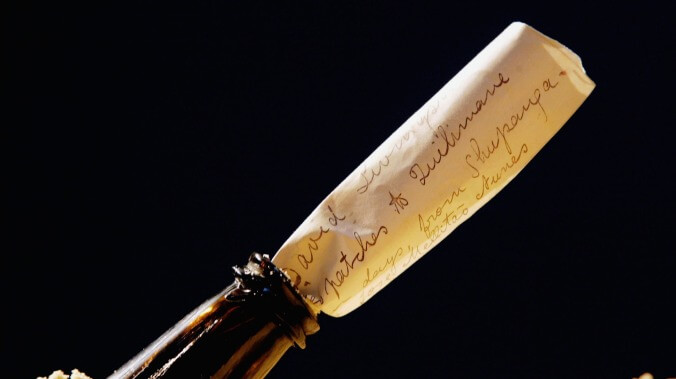Alaska man discovers Soviet message in a bottle, 50 years later

Here’s something extremely pleasant: a message in a bottle, written by the crew of a Soviet fishing vessel, discovered by a high school basketball coach in Alaska almost exactly 50 years later.
The bottle was found by Tyler Ivanoff, who lives in Shishmaref, Alaska, an island town of about 600 just north of the Bering Strait. “I found a message in a bottle today,” Ivanoff wrote on Facebook. “Any friends that are Russian translators out there?”
In an interview with The Moscow Times, Ivanoff said he discovered the bottle while on a boat trip with his children. “I showed my children the bottle, and they were very excited for me to open it,” he said. “I opened it up, and saw that it was in Russian. They asked me how [Russians] spoke. And I talked a little, like counting to 10 in Russian, and said a small poem that I learned in Russian from when I was in high school. I came home from [our] short boating trip and posted the photos online of the message to see if some friends can translate it.”
Here, per a translation on Twitter, is what the message says:
Best greetings from the Russian fleet of the Far Eastern Shipping Company. Fleet V.R.H.F. from vessel Sulak. I welcome you, who found this bottle, please inform us at the Vladivostok-43 vessel Sulak, to the entire crew. We wish you good health, long life and happy sailing! 20/06/1969
Delightful. Even more delightful, a Russian news outlet appears to have found the captain of the ship, now-86-year-old Anatoly Botanenko, who was 36 when he sent the message. Botanenko said he and his crew decided to send the message after receiving some good news about reaching their production quotas.
“Great joy!” he said (via Yandex). “It is surprising that exactly 50 years later the message was found. I took this ship personally. A huge steamer. The pride of my work.”
Perhaps this will be the start of a new trend in social networking, where instead of posting online, you write something nice to no one in particular and throw it into the ocean, and no one will have to look at it for at least 50 years.